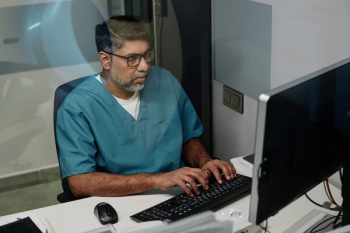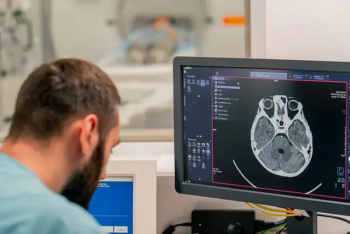
Those Angry Radiologists
Complaints are often clues on how to improve patient care-if only someone would listen.
Not long ago, I overheard a bit of conversation between a couple of radiology leadership-types. That is, folks whose primary role in our biz is the herding of rads, rather than the performance of clinical work. Mention was made of “angry” radiologists under their helmsmanship.
The notion was that once a rad was “angry,” s/he might as well be given up for lost, and efforts were to be more efficiently directed at other, non-angry rads. This struck me as a monumentally bad philosophy that could waste any number of opportunities.
True, I did not hear the whole exchange. Perhaps they were speaking of a subset of rads who were habitually vexed. Malcontents and/or hot-headed types who would, as a histology prof of mine once said in his less-than-perfect English, “complain against their own shadow.” In other words, folks whose negativity would persist no matter how much the world conformed to their wishes.
My impression was that it was a more sweeping dismissal of those with less-than-sunny dispositions. Someone under your command is expressing displeasure, and that’s unpleasant to deal with. Maybe because it implies that your leadership is less-than. They’re kinda-sorta challenging your authority. Maybe you don’t like confrontation. And/or the prospect that, if you do engage them, you won’t be able to placate: There’s a good chance you’ll be expending your energies on a losing proposition.
And maybe you don’t consciously recognize that these are factors making you want to shun the unhappy camper, so you allow yourself to paint him as “angry,” giving yourself an excuse to not even try.
Taking a big step back from the potential specifics, let’s for a moment consider that maybe, having made it through any number of years of work as a physician and schooling prior to that (not to mention the intensive selection-processes along the way), the vast majority of rads do not have emotional disorders. That is, if one is coming across as “angry,” maybe there are one or more good reasons for it.
People do, of course, get validly angry. And while a subset might internalize it, coming across as varying shades of unruffled, indifferent, even depressed or beaten, others don’t. I am sure that some folks in leadership positions would prefer to have their subordinates in such a condition: Broken-in, easily controlled, and unlikely to cause problems.
I’m of the mind that, at least in our line of work, this is precisely what we should not want. Give me a physician who still has some fight in him, someone who will speak up and even take action when he perceives something wrong with the way his group, referrers, or healthcare system is functioning. I’m not at all impressed by a doc who has been through one too many battles, grown weary of it all, and learned to just keep his head down while patient-care is allowed to be less than he knows it could be.
My suggestion to a leadership-type ready to disregard one or more rads because they seem “angry?” Don’t. They are big, helpful arrows pointing to things that, if you pay attention and keep an open mind, might just be improved.
Newsletter
Stay at the forefront of radiology with the Diagnostic Imaging newsletter, delivering the latest news, clinical insights, and imaging advancements for today’s radiologists.












